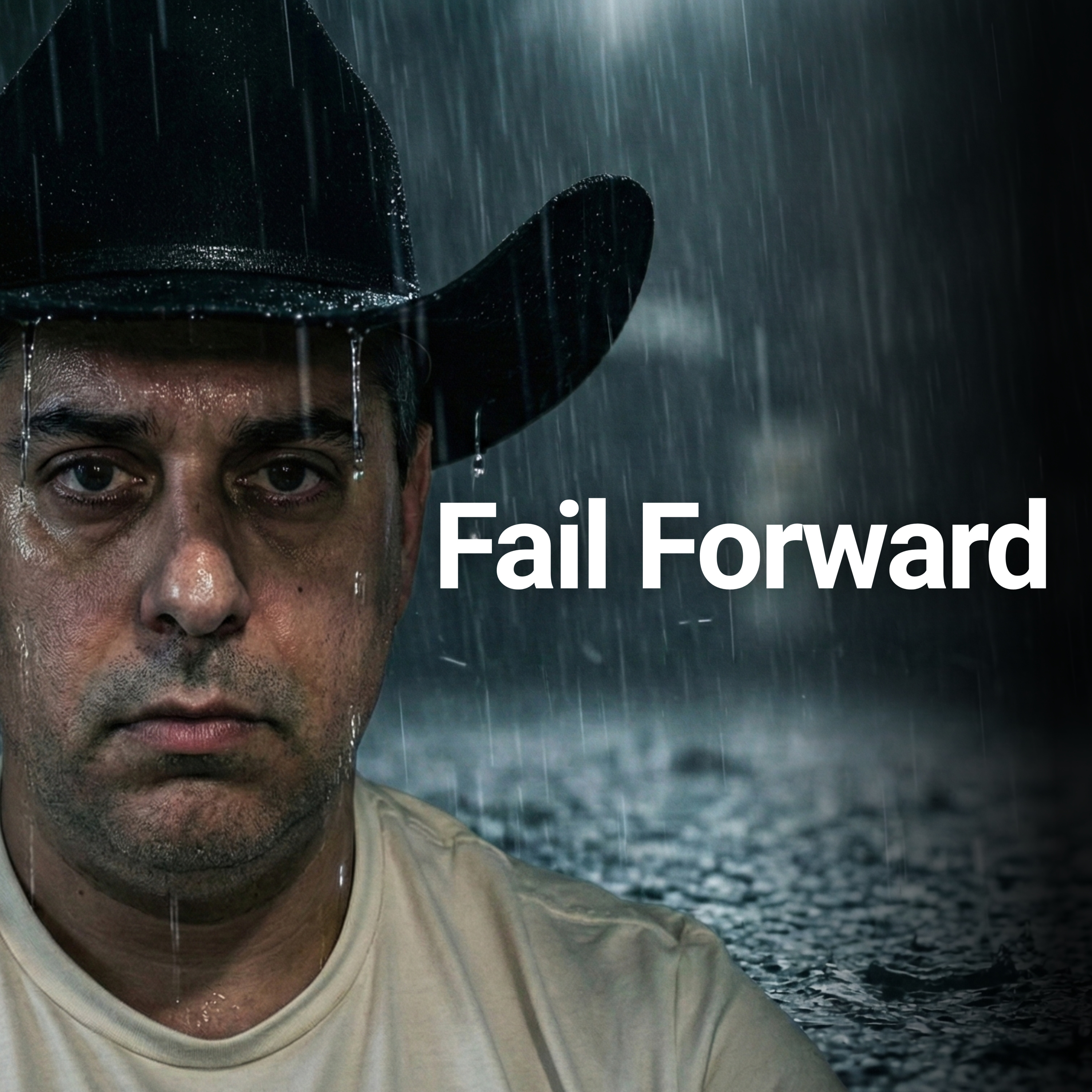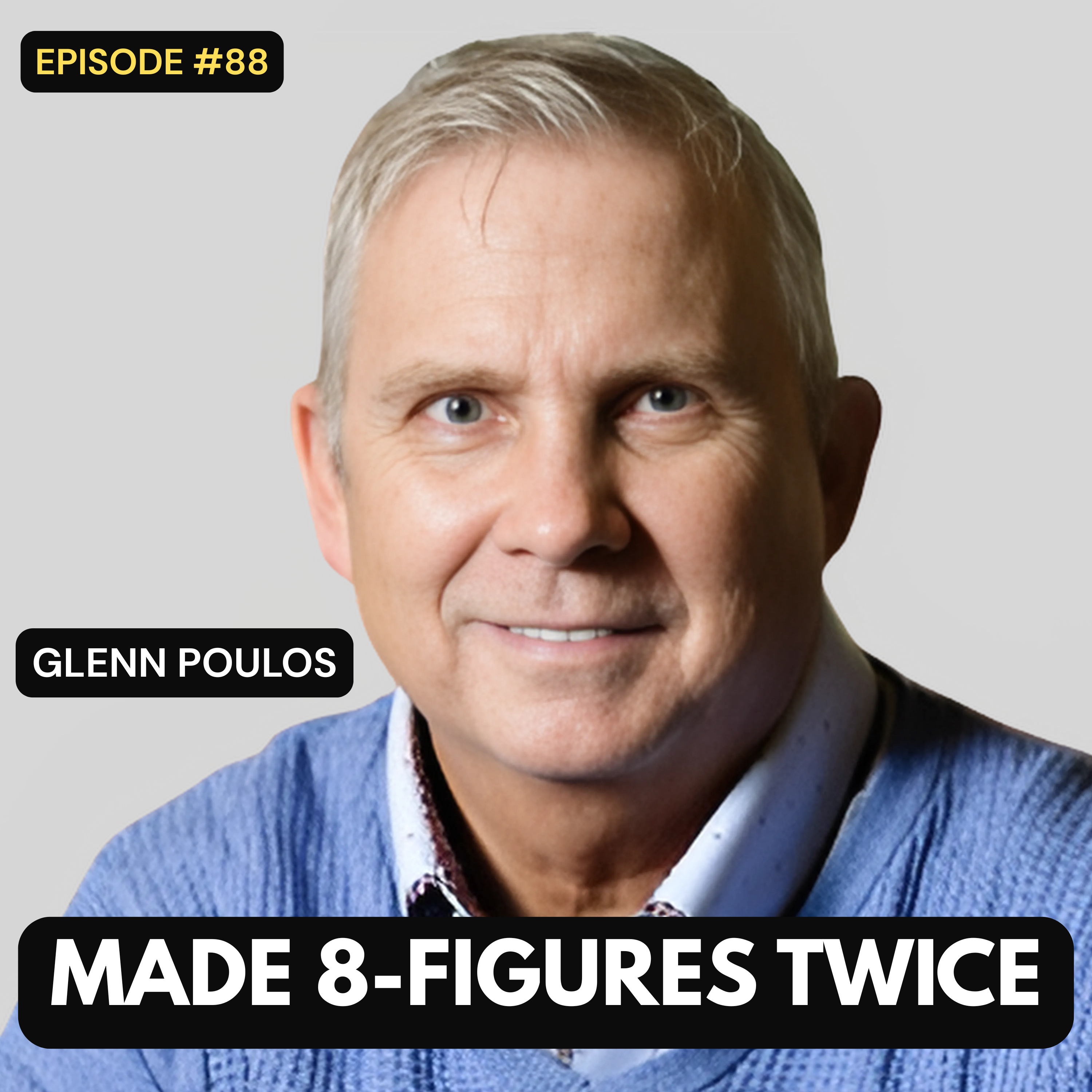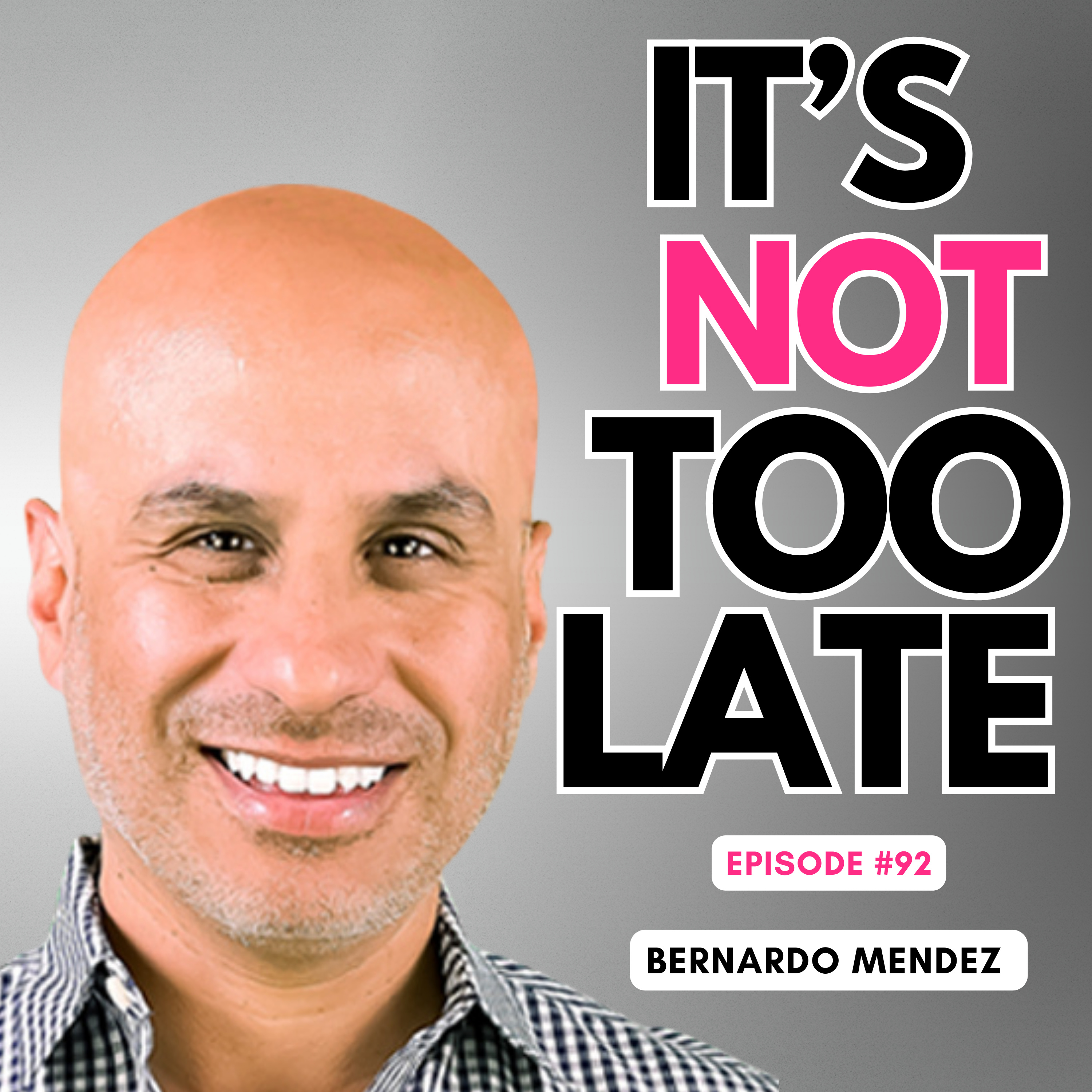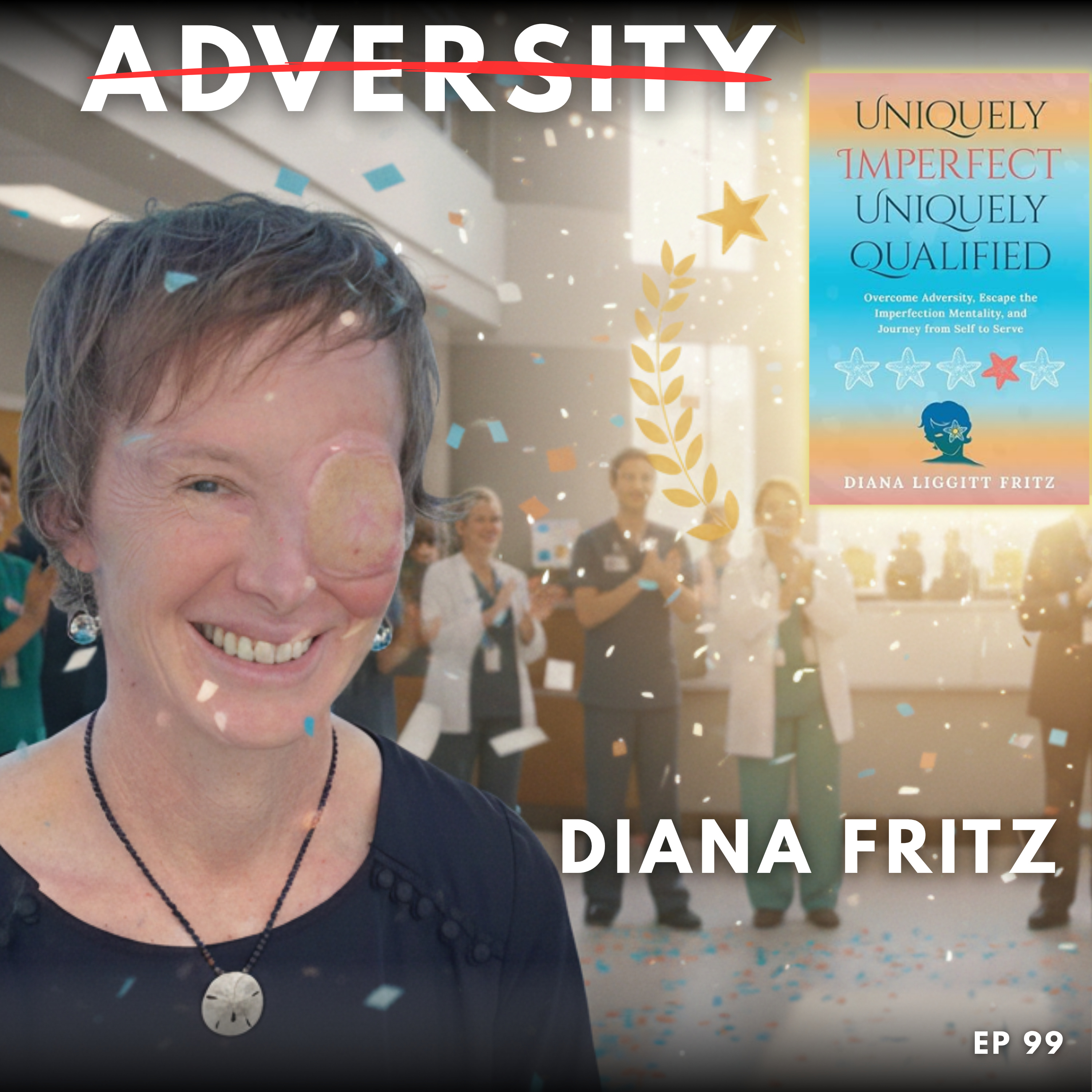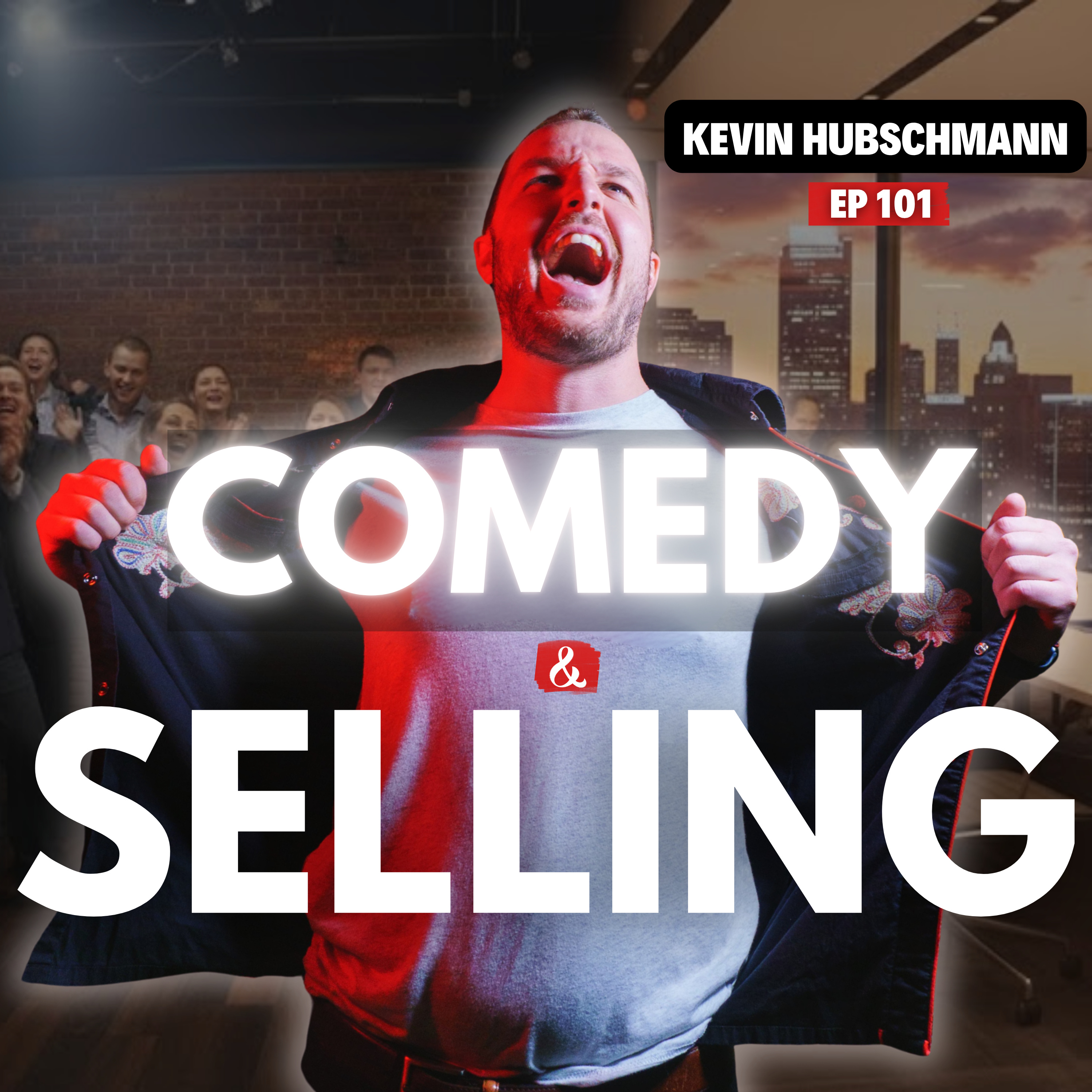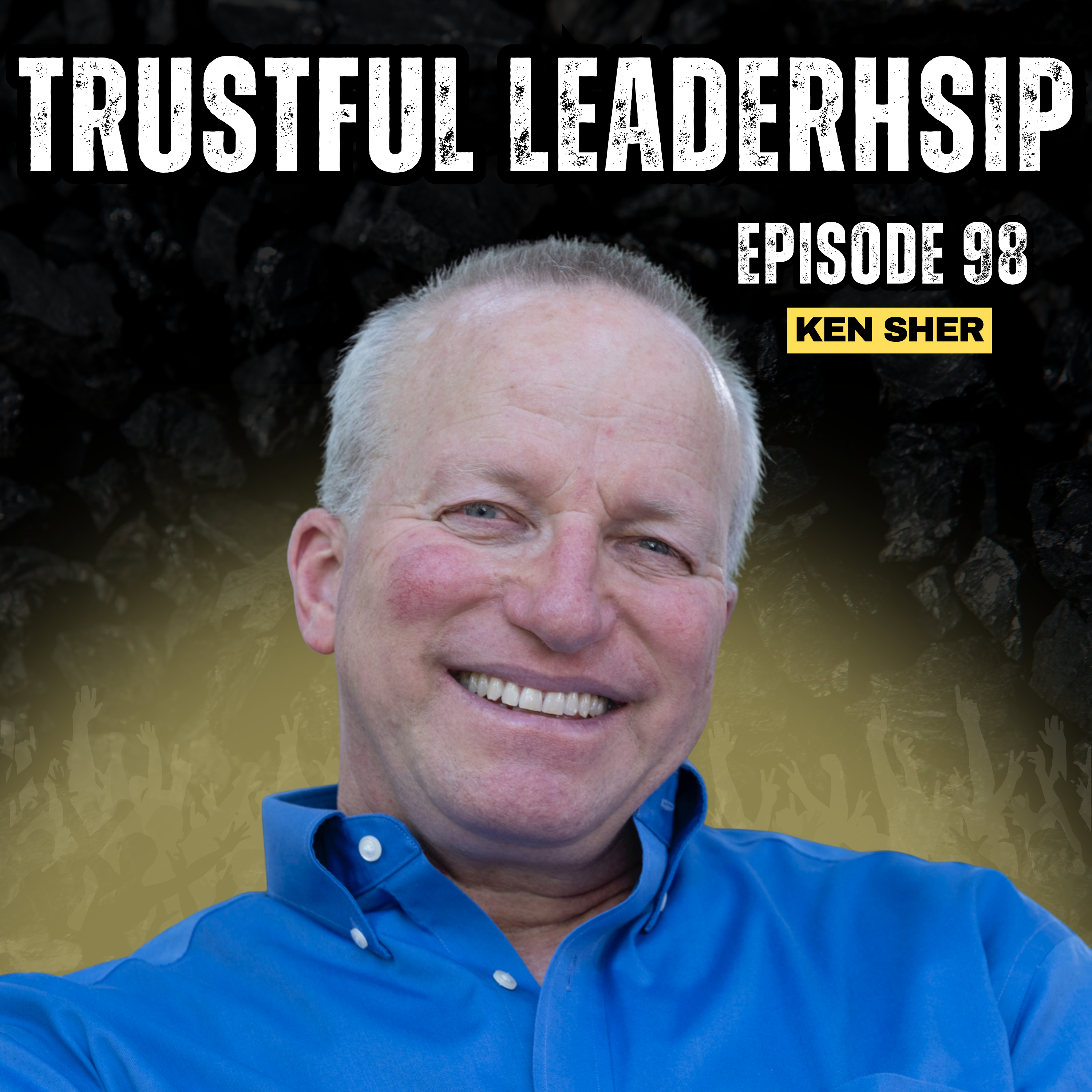
Summary
In this episode of the Managers Mic podcast, host Paul Leon speaks with executive coach Ken Sher about his extensive career in sales and leadership, the importance of trust in building relationships, and the lessons learned from his time at Johnson & Johnson. They discuss the challenges of career advancement, the impact of layoffs, and the role of loyalty in the workplace. Ken shares insights from his book, 'What's Trust Got to Do With It?', and emphasizes the need for transparency and understanding in leadership. The conversation concludes with reflections on success and the importance of helping others achieve their goals.
Follow Ken Sher
Book | Website | LinkedIn | YouTube
Sound Bites
"Loyalty only goes so far."
"It's all about trust."
"I love helping people."
Takeaways
Trust is the foundation of great relationships.
Loyalty only goes so far in corporate environments.
Winning is defined by seeing others succeed.
Control what you can control in your career.
The importance of transparency in leadership.
Building relationships is key to success.
Therapy can help in overcoming career challenges.
Corporate culture impacts employee loyalty.
The trust framework is essential for effective leadership.
Helping others is a rewarding aspect of coaching.
Chapters
00:00 Introduction to Ken Sher and His Background
02:17 The Trust Model in Leadership
05:04 Building Relationships and Trust in Sales
07:50 Identifying Leadership Potential
10:37 Navigating Career Advancement and Loyalty
12:16 Overcoming Layoffs and Building Resilience
14:52 Reflections on Corporate Loyalty and Personal Growth
17:30 Finding Success After a Layoff
22:42 Navigating Loyalty in Leadership
28:02 The Journey of Writing a Book
30:54 Trust and Transparency in Business
33:45 The Impact of Loyalty on Employee Relations
35:56 Building Trust in the Workplace
Ken Sher (00:00)
“You will never live up to my expectations.” And then he made my life miserable for the next few months until, finally, HR called me in and they let me go.
Paul Leon (00:08)
Back to The Manager’s Mic podcast. Very excited to have our guest today, Ken Sher, an executive coach and sales leader. We were talking before we got started, Ken, and your background is impressive. We connected on similar experiences. Although there may be a gap in time, we’re going to build bridges—because you have the experience, you get results, and you’re easy to talk to. I hope that as I show how easy you are to talk to, listeners get a lot of value from your years of experience.
Ken Sher (00:44)
I appreciate the comment about being easy to talk to. I like to think that, but it’s nice to hear it—so thank you. I spent 25 years at Johnson & Johnson. I started as a sales rep carrying the bag in New York City. Then I became a district manager and later moved in-house to corporate as a product manager and product director.
After that, I led J&J’s U.S. sales recruiting team. So I have experience across sales, marketing, and recruiting, which leads to where I am today: a career coach helping people find their next role, and an executive coach helping leaders be more successful.
Paul Leon (01:31)
You also wrote a book. We’ll go deeper into it, but talk a little about it.
Ken Sher (01:33)
I did. The book is called What’s Trust Got to Do With It?—shamelessly borrowed from Tina Turner, though I won’t sing. The subtitle is Transforming Leadership, Culture, and the Job Search. TRUST—like all great models—is an acronym: Transparency, Results, Understanding, Simplicity, and Teams.
I broke the book into three sections: leadership (how the TRUST model develops leadership skills), culture (how to build organizational culture), and job search (how to find your next opportunity).
Paul Leon (02:17)
Let’s reverse-engineer. Writing a book takes a long time and a lot of thought to simplify. We can glance at a framework like TRUST, but I want to go back to when you first started at Johnson & Johnson. For someone new at a company who wants to be a sales manager—or finds a calling to do that—what would you say to that person through the TRUST lens?
Ken Sher (02:52)
Let me give you a higher-level view of my time at J&J, because I learned a lot. I left under unfortunate circumstances—we can get into that—but I still view J&J fondly. It’s a solid company. No company is perfect, but they typically do the right thing.
When I first started, I went to a big sales meeting. I remember calling my wife and saying, “We do this, and we do that.” She said, “They’re brainwashing you, aren’t they?” I said, “Yeah, but it’s great. It’s positive. It feels good.” They didn’t just teach how to sell products; they showed how we were helping change the world.
At the time I was in women’s healthcare—giving women reproductive freedom so they could go to work. I never felt like I was selling a product; I was selling an idea that impacted the world. J&J was ahead of the curve on a lot of things—reimbursing gym memberships, encouraging balance. My bosses would say, “You’re coaching your kid’s soccer team? Get out of here—go coach.” It was good for me and good business.
I learned that trust is the foundation of great relationships, and great relationships are the key to success. Whether you’re job-seeking—how quickly can you build trust with a recruiter or hiring manager—or leading a team, those trusting relationships carry you and help others advance.
Paul Leon (04:49)
Your wife said, “They’re brainwashing you.” Everything is brainwashing; it depends on what you wash your brain with. Talk about the good “brainwashing.” You said they sold you an idea. Can we peel that onion more?
Ken Sher (04:53)
The work-hard/play-hard philosophy wasn’t unique to J&J, but they lived it. We worked hard, and they rewarded it. The key, for me, was onboarding. They taught us J&J’s history and told a story that stuck: General Robert Wood Johnson wrote a one-page, four-paragraph document called “Our Credo.” Each paragraph states a responsibility to a key stakeholder.
First: healthcare professionals and patients—safe, effective products. Second: employees—a safe workplace and fair wages. Third: communities—give back and be good environmental stewards. Fourth: stockholders—a fair return. When he wrote it, he was the only stockholder, yet he put others first. He knew if he took care of them, returns would follow. J&J has paid quarterly dividends for 90+ years.
Lesson: it’s not about you as the leader. It’s about how you take care of stakeholders and develop relationships. That determines success.
Paul Leon (07:01)
Visionary stuff. I’d never heard that story.
Ken Sher (07:15)
—
Paul Leon (07:20)
On vision: being able to communicate and level-set is a skill. You were there 25 years. What habits signaled someone would win versus someone who might not be ready?
Ken Sher (08:07)
Former PepsiCo chair Roger Enrico (often misattributed, but the point stands) said failures trace back to leadership development. If you don’t invest in developing leaders, success is short-term. J&J invested.
How I assessed readiness: put people in situations. If someone is high-potential/high-performance, test beyond their current role—have them lead a meeting, present to leadership, coach a peer, run a project. Coach them along the way so when they step up, they’ve “been there.”
From TRUST, the “U” is Understanding. A leader’s first job: one-on-one conversations to learn where a person is and where they want to go. If someone wants to be the best in their current role, coach one way. If they want to move up, coach another. If you don’t know their ambition, it’s hard to lead them.
Paul Leon (10:37)
I’ll challenge you with a market example. I know a smart friend who jumped roles and companies to accelerate—manager to director elsewhere, then again, now near CEO level—never more than three years at a company. How do you view that relative to loyalty and TRUST?
Ken Sher (11:17)
If by “career to career” you mean cross-functional or cross-company moves—yes. She sounds very talented.
On loyalty: a corporate pet peeve was “We can’t move you; we need you here.” That’s selfish. Don’t block growth to serve a manager’s convenience. If someone has performed, reward them.
I used to be all about loyalty. J&J took care of me; I gave everything back. Example: I told my boss I’d need to leave early once a week to coach my kid’s soccer team. On the first day, a few minutes before I left, he said, “Then get out of here. See me first thing tomorrow and take care of it. What—leave them on the field alone?” That support built loyalty. I came in early and stayed late because he respected my life.
Another example: as a district manager, a rep called in pieces—his brother in Puerto Rico had been robbed and murdered. He needed to get his parents and himself there and couldn’t afford it. This was before corporate cards. I called HR—Stan Davis—and within an hour he said, “Tell him there are three round-trip tickets waiting at JFK. No reimbursement. Take care of your family. We’ll be here when you get back.” That rep is nearing 40 years with the company. That builds loyalty.
Then I turned 52. New general manager. In our first meeting: “I’ve led two sales training and leadership development teams, Ken—and you will never live up to my expectations.” He made my life miserable. HR eventually let me go. Devastating.
Conclusion: loyalty only goes so far. I coach clients to do their best and go above and beyond, but also protect themselves and their careers. If I could get laid off after 25 years—with 24 years of meets/exceeds ratings—anyone can. Always be ready for what’s next.
As a leader, I developed people knowing they might leave for another department or company. If I truly care about them, I help them get better—even if it means they outgrow my team. If they leave, I celebrate it. I have no patience for leaders who don’t act in their people’s best interests.
Paul Leon (17:16)
Can I peel the onion more on the layoff? After 25 years, that sting is bigger. What thoughts did you have to overcome? If you could talk to that version of you, what would you say?
Ken Sher (18:17)
On that GM: I’m not sure if he left, but J&J later sold that division—which they don’t do often. In my story, they couldn’t maintain the business without me; I’m sticking to it.
It was one of the most difficult times of my life. I was 52, with two kids in college and one in high school. Thoughts: “What do I do now? How do I support my family? How do I pay for college?” At a gas station on the way home I wondered, “How do I tell my family?” Humiliating. Embarrassing. Threatening to our lifestyle. Devastating.
I needed help. I sought a therapist. First session: 90 minutes; I left feeling okay. Next week, at 45 minutes she said, “Let’s wrap up.” I said, “Last week was 90 minutes.” She said, “You weren’t in shape to drive last week.” I told my wife, and she said, “I believe it. You were a mess.”
Therapy helped me regain confidence. What I’d tell myself—and what I tell clients: you will land a good job. You will get back on your feet. You must hold that mindset; without it, it’s hard to interview or perform. Many people later say, “It was the best thing that happened to me.” Corporate America and I were done with each other. Being pushed out led me to start my coaching practice and keynote speaking. Corporate gave me great experiences and prepared me for what I do now.
Paul Leon (21:11)
Was there a moment post-layoff when you knew you were okay?
Ken Sher (21:28)
Losing a job damages self-esteem. A friend asked how I defined success. I’d been thinking job title and compensation. But I had a great family and friends, a strong track record, and skills. Getting back into interviews showed me I’d be fine. My first role back was VP of Coaching at a startup. It went well and proved I could do it. My last corporate job was at Bristol Myers Squibb leading oncology sales training and leadership development.
That led me to career coaching: I landed three new jobs in my 50s and went through hell to get there. I can help others with the technical job-search pieces and the psychological load. I’m not a therapist, but I’ve been to therapy.
Paul Leon (22:42)
Define “loyalty” in three to five sentences—your lens after 25 years, a successful rebound, VP roles, executive coach, author of TRUST.
Ken Sher (23:26)
Loyalty is demonstrating you can be trusted—with someone’s confidence, information, and career—and showing you have their best interests in mind. As a leader, everything you ask is about helping them get better. That builds loyalty.
Example: at Bristol Myers, a VP had an issue with a trainer two levels below me and wanted him fired. I fought to protect him. It was clear she wouldn’t change her mind. I couldn’t say “you’re on your way out,” but I felt loyal to him—he worked hard and got the job done. I told him, “Take care of yourself.” He soon resigned and thanked me.
Leadership isn’t about me; it’s about the team. As an individual contributor, it’s about what you do for stakeholders and customers. Do that, and you build loyal, trusting relationships that help you get where you want to go.
Paul Leon (25:48)
Middle management is intense—two major customers: above and your team. You mentioned therapy. Quick share: I was denied life insurance due to “excess therapy,” which they read as suicidality. I had to explain it was treatment for a toxic manager who dismissed my family crisis; then they approved it. Later, my pastor gave me four words: “Bless them. Help me.” I repeat that often.
When did you write the book—during or after all this?
Ken Sher (28:16)
After corporate, while coaching. I started with LinkedIn blog posts, then compiled them into a book so people could use the ideas with or without me. TRUST being the key goes back to J&J and the Tylenol scare. Not the recent one—the original in 1982.
A 12-year-old girl in Chicago wasn’t feeling well; her parents gave her Tylenol. She never woke up. The next day, six others died, including four from one family. A health inspector found an open Tylenol bottle and a receipt. The bottle smelled almond-like (a cyanide indicator). Tests showed capsules had been emptied of acetaminophen and refilled with cyanide.
J&J had choices: PR spin, “isolated incident” messaging, or wait out the news cycle. Instead, guided by the Credo—first responsibility to patients and healthcare workers—they told people to stop taking Tylenol capsules, pulled products from shelves at a cost of hundreds of millions, and later relaunched with the first tamper-resistant packaging. Within months, Tylenol was again the #1 OTC pain reliever.
Why? Trust. Consumers saw J&J put safety above profit. Transparency, results beyond revenue, understanding stakeholder needs, simple clear messaging (“Stop taking it”), and coordinated teams. It’s now a business-school case study. The lesson: it’s all about trust.
Paul Leon (32:51)
You weren’t at J&J then, but it became part of the cultural indoctrination.
Ken Sher (32:53)
Right. It taught us the integrity expected—how to handle bad news, not just good news.
Paul Leon (33:16)
We tend to blame big companies, but “more money, more problems” has truth.
Ken Sher (33:38)
Do you remember Occupy Wall Street? People camped out and protested. At first, I thought, “They’re protesting a building?” Later, after layoffs and other events, I realized they were protesting companies putting themselves ahead of their people—“We need more profit; we’ll lay off the people who got us here.” That’s where loyalty breaks. Maybe it was always that way, but it’s tougher now.
Be loyal while you’re there, but don’t feel you must stay forever. Take care of yourself. Tomorrow they can say, “You’re gone.”
Paul Leon (35:09)
On loyalty and today’s “war on remote”: many companies show a lack of trust. It feels like employee and employer are more divided than ever. How do we bridge trust today?
Ken Sher (35:57)
Control what you can control. Even as a VP, you can be overruled by a president or board. But you hire people after diligence—interviews, background checks—because you believe they can do the job. Let them do the job. Don’t micromanage. Give tools. Be transparent—share as much information as you can, good and bad. People hold back when they feel you’re holding back.
On Results: it’s not just the end number. At J&J we said, “If you hit the goal but left bodies in your wake, that’s not success.” Hit milestones so you can course-correct or encourage along the way.
Understanding: if someone wants the next level, steer them to experiences that prepare them. The world is noisy; attention spans are short. Help people focus on priorities.
Teams: build professional networks and rely on family and friends.
Two worst leadership styles: the micromanager, and the absentee “If you don’t hear from me, everything’s fine” manager. Hire well, equip them, and lead actively.
Paul Leon (38:15)
Any projects in the next 18–24 months? Where can people follow you?
Ken Sher (38:23)
Connect with me on LinkedIn—that’s where I’m most active. My book What’s Trust Got to Do With It? is on Amazon. My website is shercoaching.com. I love helping people. I recently started as a hospice volunteer, too. If you want a 30-minute chat to bounce ideas, get thoughts, or vent, reach out. My contact info and calendar link are on my LinkedIn profile, or email me at ken@shercoaching.com. No pressure—happy to help either way.
Paul Leon (39:21)
One last question: how do we define winning today?
Ken Sher (39:28)
Professionally, compensation matters, but it’s not my top driver. Winning is helping other people succeed and doing what I can to move projects and people forward. When I do that, compensation follows. When I get off a coaching call and we’ve made progress, I get a buzz. Knowing I influenced someone and improved their life—that’s winning.
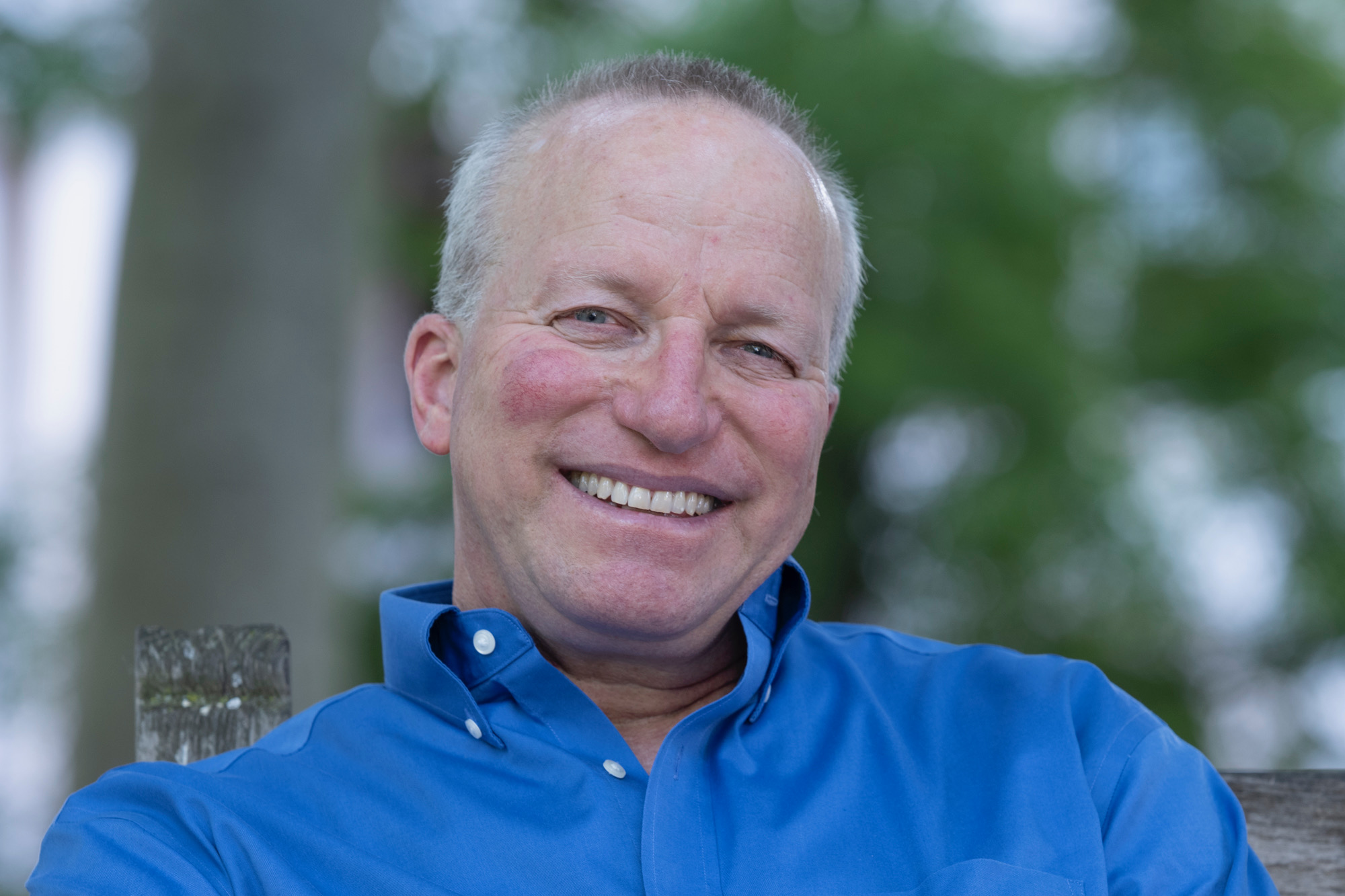
Executive Coach, Keynote Speaker, Author
Ken Sher is an Executive Coach, Career Coach, and Keynote Speaker who has over 30 years of experience working with leaders at all stages of their career and with companies of all sizes. Ken’s coaching style is based on his 25-years at Johnson & Johnson in various leadership roles in sales, marketing, sales training, recruiting, and leadership development. He has developed the TRUST Model® which, when applied to professional relationships, networking, and job searches, leads to transformational results.























